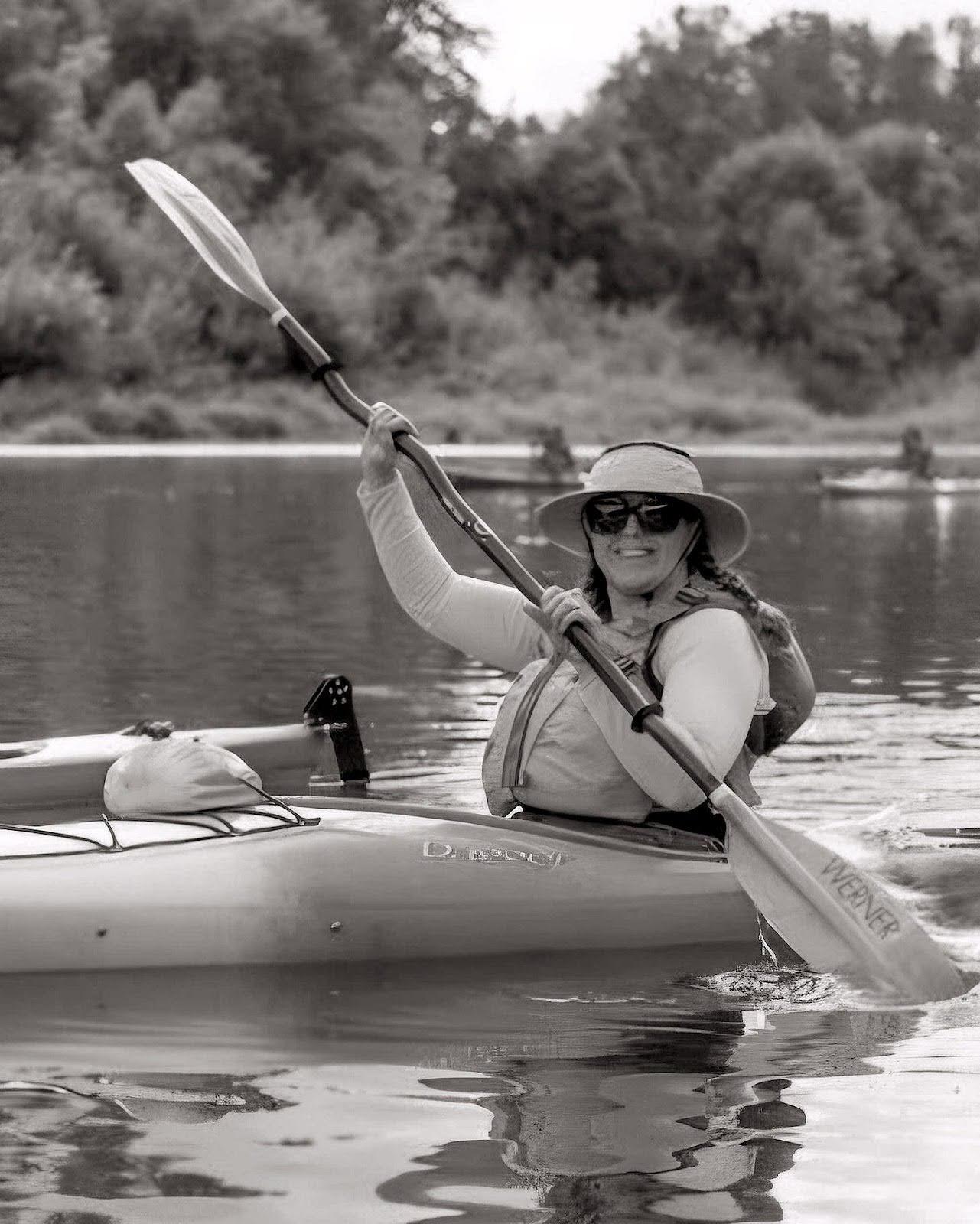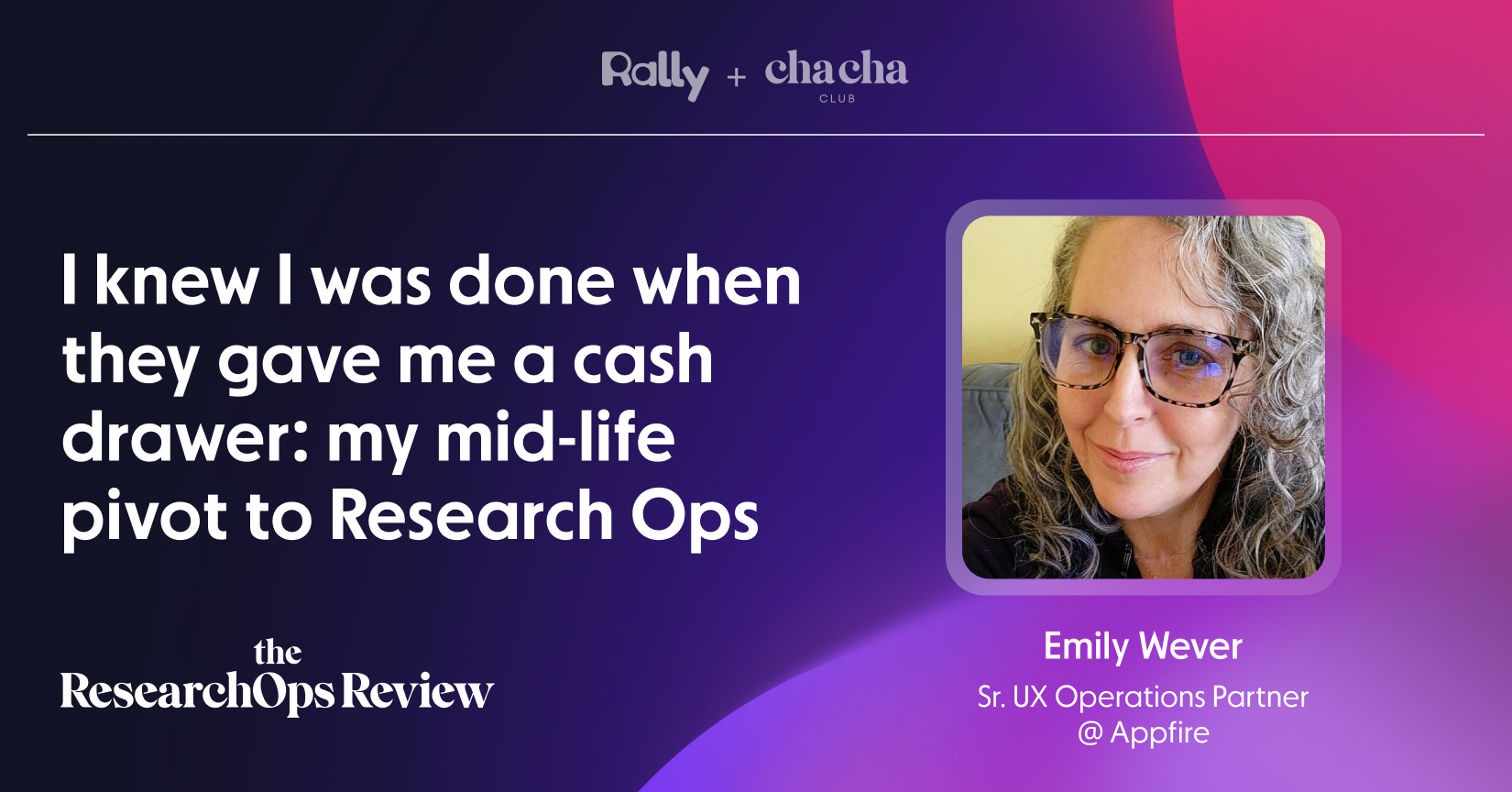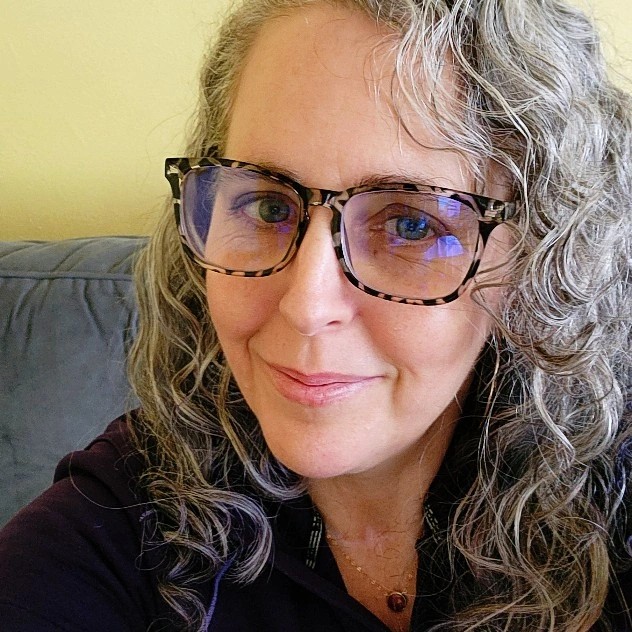I knew I was done when they gave me a cash drawer: my mid-life pivot to Research Ops
I worked in commercial banking for twenty-five years; among other responsibilities, my role included working as a Treasury Management Assistant and Officer, loan assistant, and applications trainer. In all that time, I’d managed to avoid working directly with cash — a time-consuming and cumbersome responsibility. Then, in 2021, I was assigned the loathed cash drawer. There I was, suddenly learning how to create cashier’s checks and balance a vault for the first time — not at all how I’d imagined my career trajectory. That’s when I knew it was time for a change. Before my time in commercial banking, I worked in Treasury Management with all sizes and types of commercial customers, helping them manage their cash flow operations. So while I understood the complexities of cash, I wasn’t interested in the actual job of managing a cash drawer.
I had been thinking about trying something new for a while, but there was always a reason to stay. A couple of times, a better position came along just as I was exploring other options. Other times, I stayed because of financial instability at home. Besides, I was good at the job, and I’d learned to survive in a surprisingly volatile industry — the notion that banking is stable is a myth. But when that cash drawer showed up, I knew I was done.
One would think that an experienced professional like me would find a variety of countless new career options. But having years of client management and operational experience isn’t actually the asset I thought it would be — and it’s often seen as a drawback, at least once you get past forty. Finding a new job is hard, especially in a new field. And it gets even harder as we — and our careers —mature.
Older professionals can be tagged with the stigma of being set in their ways or unable to learn new things. Unfortunately, this idea completely ignores the value of our years of experience and the massive effort and adaptability required to make a career change.
While it wasn’t necessarily easy, my own mid-life career pivot turned out to be the perfect opportunity to mine the extensive expertise and experience I’d amassed, and find the treasure of a better career fit. This article isn’t only about the challenges; it’s also about the practical steps you can take to find your next role in Research Ops, wherever you’re starting from.
Network (in the best ways)
In September of 2021, a friend and I took a two-day kayaking trip down the Willamette River. The weather was a perfect example of late summer in the Willamette Valley. Sunny but not hot during the day, cool but not cold at night. Enough clouds to make the sky interesting and give you occasional shade, but not so many that it’s overcast. The river was calm but not too low for the end of summer. We literally couldn’t have asked for better conditions. After a full day of paddling, a great dinner and camping under the stars, we set out on day two. The second day was just as beautiful, and even though my arms were screaming at me from the previous day’s effort, I couldn’t wait to get back on the water. It was an organized trip, so there were about 50 of us, all paddling at our own pace, speeding up and slowing down with the current (and remaining strength), meeting and talking as we caught up with one another.

Towards the end of the day, as we approached the take-out point, I started talking to a woman I had never met. I was surprised to learn that she was also interested in a career pivot, and that her husband (also on the trip with us) was an experienced professional in the field of Project Management (which I was looking to enter). As we were taking our boats out of the water, he offered to look at my resume, and we exchanged information. Over the next few weeks, we spoke a few times about projects he was working on and how my previous experience could be valuable, and a few conversations and some coaching later, he offered me a job working on a large project for a local utility.
It was an incredibly lucky break!
And…this was not the first time I had shared my ambitions with a total stranger. I had been talking to anyone and everyone who would listen for months. Most of the time, people are happy to listen and share their knowledge and experience. I didn’t approach people with the idea of pitching myself. More often, I asked about their role and how they had navigated their career, and asked, “Do you have any suggestions about entering the field?” Talking to people about my plans to switch careers continuously and repetitively not only counted as networking, it also created the momentum I needed to make it actually happen.

I’m living proof that opportunity can come from anywhere, so if you’re looking for a new role, talk to anyone who will listen or take a meeting. Strike up conversations. Be brave and take advantage of casual social scenarios as a way to practice talking about who you are and what you want to do professionally. The worst that will happen is that, if whoever you’re talking to can’t help, you’ll move on to the next potential opportunity.
In the end, I worked in that utility role for less than a year, but it gave me the confidence and professional credibility to move to my next role — my Research Ops role.
Organize your (many!) transferable skills
After working in one industry for so long, understanding how your experience might apply to other industries is challenging. Many of my skills felt specific to banking.
Of course, to change jobs, I needed to update my resume, which can be difficult — even when you know the lingo! One friend in particular sat down with me and went through my resume line by line. I’d explain what something meant, and he would help me reframe it. It took hours. But after that process, I had a better understanding of how to talk about my previous experience in a new context. We turned jargon into general terms and tied all of it to the broad range of skills I had accumulated over the years. Apparently, I knew how to manage vendors, work with legal and finance departments, and use process thinking!
The exercise of updating my resume, changing words from industry-specific jargon to more general business terms, helped me understand my own skill set in a new way. That meant I could explain my experience and skills clearly to others as well, whether in interviews or networking conversations.
One of the more valuable transferable skills that emerged as I turned my focus to Research Ops, was process thinking. I never had a name for it; it was just how I had always moved through my career: look at a system, identify where it works and where it breaks down, then design a better process going forward. Process thinking is commonplace in banking, even if we don’t call it that. We called it “creating efficiencies” or “making things repeatable,” just as we do in research, as it turns out.
Context is everything, and understanding the bigger picture of how my existing skills would translate into a new context, such as Research Ops, was helpful. But it was only the beginning of my professional reinvention.
Become a student again
Regardless of the kind of transition you’re making, you’ll likely need to learn new skills. Even more than earning a shiny new certification, putting in the effort to learn shows potential employers that you are adaptable, especially in a new field, where you may not have colleagues to attest to how great you are at your job (yet).
My path to research operations went through project management. I obtained a Certified Associate in Project Management (CAPM)® from PMI and a Google Project Management Certificate. While the certifications gave me credibility separate from my previous work experience, what I really wanted was to show that I could stretch myself and learn things that were entirely unrelated to the work I‘d done before. In my transitional role, my employer worked with me to both use skills I understood and help me get more comfortable with project management (PM) language and processes.
Six months into my utility job, I learned that our contract wasn’t going to be renewed, so I began to look for my next role. Even with the certifications, my lack of specific experience was hampering my search. It felt like being right out of college, in the space where you are ready to work, but everyone who told you to get an education now wants years of experience, too. A contact recommended I look at their company for project management positions, but they were also looking for years more hands-on experience than I had…yet. While looking at the available jobs, I found a position for a B2B recruiter in the Customer Research department. It was described as half relationship management and half panel building. This seemed like a perfect opportunity to combine my previous experience working with business clients and corporate relationships with elements of project management.
Once I started in that role, the opportunity for growth accelerated. I was originally hired to recruit B2B research participants with a focus on building a community, or advisory board, and a customer panel. Within a few months, a corporate reorganization meant we needed to start from scratch. Because of my previous experience, I quickly realized we lacked any operational infrastructure. This need for operations and, everyone’s favorite word…compliance, was obvious to me. This was the moment I set about learning all about Research Ops.
Most industries have operations that would translate into a research operations role. I gravitated to topics that were familiar to me, like data governance and legal compliance. I leaned into the places where the gaps existed. Our consent process was inadequate, and we needed more comprehensive participant tracking, so working to close those gaps was my starting point. Next was a better structure for the recruiting process. I worked with others on my team to create a schedule for recruiting projects, repeatable processes, and estimated timelines for completion.
The more I learned about Research Ops, the more I saw parallels with operational processes I’d worked with in the banking sector. Tech can seem like the opposite of banking, but there are so many similarities to the needs of running a business. Banking doesn’t call them OKRs, but they still have objectives and key results. I was able to take my previous experience, find resources about the industry and the discipline, and then successfully integrate the two.
But there is always more to know, so almost every week, I take the time to attend a webinar, meet with a Cha Cha Club member (if you are a Club member), or read something helpful (Kate Towsey’s great book, for example). There is so much to learn, and so many generous people to learn from.
Embrace uncertainty
One of the biggest surprises-that-should-not-have-been-a-surprise was no longer being a subject matter expert. I have lost count of the number of times I have had to ask for help in situations I would have easily handled myself in my previous career.
Changing careers requires humility and a willingness to embrace uncertainty, which you may not be used to. You’ll need support while learning the new processes, language, and the rhythm of your new industry and role. I found the experience very humbling, but absolutely worth every time I had to say, “I don’t know” or “Can you help me with this?” I encourage everyone interested in doing something new to say “yes” to every opportunity to learn and grow. And to accept every bit of help that is offered along the way.
Most of all, be patient with yourself. If you’ve been doing the same kind of work for years, there will be a period of adjustment, and it will likely be longer than you think it should be. That doesn’t mean you aren’t doing a good job. It means you are growing, which is what you wanted, but growth is also very uncomfortable and sometimes difficult. The years you spent getting really good at that thing you don’t do anymore bring a new and different perspective to your company and the people you work with. If you are able to embrace that difference and show its value, you'll find that your outsider’s perspective can often be exactly what your new team needs, even if they don’t realize it yet.
Jump in with both feet
Ultimately, everything we do in business is about people working together to accomplish a goal. In the simplest terms: create a product, sell that product, make a profit, and repeat. People may have different titles and do different types of work, but the goal of adding value is the same. Implementing even minimal operations helps save time, reduce effort, cut costs, create accountability, and prevent fraud. All good things, no matter the industry.
Changing careers at any age is a risk, and it can feel like an even bigger risk when you are over forty. For me, it came down to the fact that my desire to make a change was stronger than the siren song of safety coming from a place that no longer engaged me. I had to follow the same advice I had repeatedly given to my children: if you want something, even if it scares you, sometimes you just have to jump in with both feet.
What I didn’t understand at the beginning of this journey is that successfully moving to a new career is just the beginning. I found the set of keys I needed to unlock a specific door, but I still need to navigate what I found on the other side. I have a long way to go to get back to being a subject matter expert again, but I am getting there.
Learning how to succeed in a new role, in a new industry, in a new career will take all of the skills you have, and put them to a new test. Sometimes you’ll get it right on the first try — sometimes, on the twelfth. But if you’re just as tenacious as you were in your last career, chances are you’ll figure out the next one, too.
And I don’t have to balance a cash drawer.
Edited by Kate Towsey and Katel LeDu.
👉 The ResearchOps Review is the publication arm of the Cha Cha Club – a members' club for Research Ops professionals. Subscribe for smart thinking and sharp writing, all laser-focused on Research Ops.
Rally’s Research Ops Platform enables you to do better research in less time. Find out how you can use Rally to empower your teams to talk to their users, without disjointed tooling and spreadsheets. Explore Rally now by setting up a demo.

